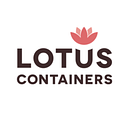Renting Containers | LOTUS Containers
Shipping or storage containers have changed the way storage was done or the way cargos were transported. The growth of the use of storage containers has been phenomenal. Not only are they used to store or ship cargoes, but they are used for many other purposes such as office space, restaurants, pools and stores.
Bigger organizations may own containers, but it is very common for these storage containers to be rented for various purposes. There are various factors one must consider before renting a container.
The Need: The first and foremost is the need for renting storage containers. Storage containers come in various shapes and with various features. Do you want to simply store non-perishable goods? In this case, the rents are usually at the lowest end as plain and simple containers normally serve the need. For perishable goods, you may need reefers or refrigerated containers. You may need containers with doors on both sides. Or you may need containers that open from above or from sideways. Based on the various features, the rents will also vary. Understanding the need properly will save a lot of time and money.
Place of Delivery and Permit Required: Like any other goods if the place of delivery is near the rental company, the delivery charges may be less. You may also want to check whether you need a permit to hold the container in a residential area. There are various legal requirements to be fulfilled before you apply for a permit. Seek information from the appropriate authority or your renting company. You should also ensure that the truck that delivers the container can easily reach your place. If all the factors are to your advantage, you may even negotiate for free delivery.
The size of the container: Storage containers predominantly are available in two sizes, 20 feet and 40 feet long. Heights normally vary between 8 foot 6 inches and 9 foot 6 inches.Special purpose 15, 25, and 35 foot long containers are also available. You need to decide on the volume and dimensions of what you want to store.
Duration and the Rent Type: The next most important factor is deciding on the duration. The longer the duration, the better would be the rent. Check out the contract conditions and look for renewal costs. There may be insurance to cover; check whether the renting company has paid it for long term (so it might be cheap) or you should pay for it. You have to be very clear about the termination conditions and any indemnities outlined in the contract.
Physically Checking: Once you have decided on these various parameters, physically check the container for any problems. Dents, rusting, holes, and chemical etching are common problems. While your storage may not be affected by any or all of these problems, failing to notice at the beginning might create unwanted situations while you return the container, with the renting company potentially claiming that the problem was due to your usage and that you should pay for it.
Getting Quotes: Talk to different suppliers and compare the advantages and disadvantages between them. Check out the ones with the highest levels of advantage for you.
Renting containers is a serious business. As the one who pays for the use, you should be aware of these factors and make an informed decision before you rent a container.
